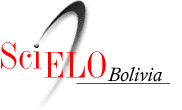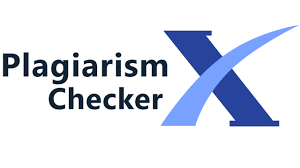Interpretation of diagnostic tests for COVID-19
DOI:
https://doi.org/10.52428/20756208.v16i40.68Keywords:
COVID-19. Diagnostic tests. Interpretation.Abstract
Nowadays, one of the permanent and important challenges is the correct selection and performance of diagnostic tests for COVID - 19, their clinical relationship, the evaluation with the transmission characteristics and the results interpretation. It is very important to determine the possible moment of transmission for the technique’s choice that will give us a reliable result and detect the markers that allow the diagnosis to be made. The tests can be direct, which allow us to detect antigens or viral particles; or indirect, which allow us to locate immunoglobulins that will provide us with information of the patient. In a first phase of the infection, direct tests can be developed with better effectiveness, and in a more advanced stage the detection is carried out by indirect tests.
Downloads
References
Forest G. Coronavirus disease named Covid-19. BBC News (en inglés británico). 11 de febrero de 2020. Consultado el 26 marzo 2020. Disponible en: https://www.bbc.com/news/world-asia-china-51466362
Ministerio de Salud de Bolivia. Conoce recomendaciones, síntomas y mitos sobre el coronavirus.12 de marzo 2020. La Paz. Consultado el 23 de septiembre 2020. Disponible en: https://www.minsalud.gob.bo/3970-conoce-recomendaciones-sintomas-y-mitos-sobre-el-coronavirus
World Health Organization. Novel Coronavirus (2019-nCoV) technical guidance: Laboratory testing for 2019-nCoV in humans. 31 enero 2020. Consultado el 26 marzo 2020. Disponible en: https://www.who.int/emergencies/diseases/novel-coronavirus-2019/technical-guidance-publications
Zou X, Chen K, Zou J, Han P, Hao J, Han Z. Single-cell RNA-seq data analysis on the receptor ACE2 expression reveals the potential risk of different human organs vulnerable to 2019-nCoV infection. Front Med. 2020;14(2):185-192. https://doi.org/10.1007/s11684-020-0754-0
Gao QY, Chen YX, Fang JY. 2019 Novel coronavirus infection and gastrointestinal tract. J Dig Dis. 2020;21(3):125-126. https://doi.org/10.1111/1751-2980.12851
Laboratory testing for 2019 novel coronavirus (2019-nCoV) in suspected human cases. Interim guidance. 19 March 2020. Consultado el 31 de marzo de 2020. Disponible en: https://www.who.int/publications-detail/laboratorytesting-for-2019-novel-coronavirus-in-suspected-human-cases-20200117.
Interim Guidelines for Collecting, Handling, and Testing Clinical Specimens from Persons for Coronavirus Disease 2019 (COVID-19). Consultado el 28 Marzo 2020. Disponible en: https://www.cdc.gov/coronavirus/2019-nCoV/lab/guidelines-clinical-specimens.html.
Guidance on regulations for the transport of infectious substances 2019–2020. Ginebra, Organización Mundial de la Salud, 2019. Consultado el 28 marzo 2020. Disponible en: https://www.who.int/ihr/publications/WHOWHE-CPI-2019.20/en/.
Corman VM, Landt O, Kaiser M, Molenkamp R, Meijer A, Chu DKW, et al. Detection of 2019 novel coronavirus (2019-nCoV) by real-time RT-PCR. Euro Surveill. 2020;25(3):2000045. https://doi.org/10.2807/1560-7917.ES.2020.25.3.2000045.
Chu DKW, Pan Y, Cheng SMS, Hui KPY, Krishnan P, Liu Y, Ng DYM, Wan CKC, Yang P, Wang Q, Peiris M, & Poon LLM. Molecular Diagnosis of a Novel Coronavirus (2019-nCoV) Causing an Outbreak of Pneumonia. Clinical Chemistry, 2020; 555: 549–555. https://doi.org/10.1093/clinchem/hvaa029
Lippi G., Simundic A-M. & Plebani,M. Potential preanalytical and analytical vulnerabilities in the laboratory diagnosis of coronavirus disease 2019 (COVID-19). Clin Chem Lab Med. 2020;58(7):1070-1076. https://doi.org/10.1515/cclm-2020-0285
Recomendaciones institucionales. Documento de posicionamiento de la SEIMC sobre el diagnóstico microbiólogo de Covid-19. Consultado el 26 marzo 2020. Disponible en: https://seimc.org/contenidos/documentoscientificos/recomendaciones/seimc-rc-2020- Posicionamiento_SEIMC_diagnostico_microbiologico_COVID19.pdf.
Jason Chin-Huat YAP, Ian Yi Han ANG, Sharon Hui Xuan TAN, Jacinta I-Pei CHEN, Ruth Frances LEWIS, Qian YANG, Rowena Kah Sin YAP, Bob Xian Yi NG, Hao Yi TAN (2020- 02-27). COVID-19 Science Report: Diagnostics. ScholarBank@NUS Repository. https://doi.org/10.25540/e3y2-aqye
Nguyen T., Duong Bang D., & Wolff A. 2019 Novel Coronavirus Disease (COVID-19): Paving the Road for Rapid Detection and Point-of-Care Diagnostics. Micromachines, 2020; 11(3): 1–7. https://doi.org/10.3390/mi11030306
Yang T, Wang Y-C, Shen C-F, Cheng C-M. Point-of-Care RNA-Based Diagnostic Device for COVID-19. Diagnostics, 2020; 10 (3): 165. https://doi.org/10.3390/DIAGNOSTICS10030165
SEIMC. Reflexiones de SEIMC sobre el uso de la detección de antígenos y anticuerpos para diagnóstico de COVID-19. 30 marzo 2020. Consultado el 9 abril 2020. Disponible en: https://seimc.org/contenidos/noticias/2020/seimc-nt-2020-Reflexiones_deteccion_Ag_y_AC_COVID-19.pdf
World Health Organization. Advice on the use of point-of-care immunodiagnostic tests for COVID-19. Scientific brief. 8 abril 2020. Consultado el 9 abril 2020. Disponible en: https://www.who.int/docs/default-source/coronaviruse/sb-2020-1-pocimmunodiagnostics-2020-04-08-e.pdf?sfvrsn=4c26ac39_2.
Zhao J. et al. Antibody responses to SARS-CoV-2 in patients of novel coronavirus disease 2019. Zhao J, Yuan Q, Wang H, et al. Antibody Responses to SARS-CoV-2 in Patients With Novel Coronavirus Disease 2019. Clin Infect Dis. 2020;71(16):2027-2034. https://doi.org/10.1093/cid/ciaa344
Zhang W, Du RH, Li B, et al. Molecular and serological investigation of 2019-nCoV infected patients: implication of multiple shedding routes. Emerg Microbes Infect. 2020;9(1):386–389. https://doi.org/10.1080/22221751.2020.1729071
Onoda M. & Martínez Chamorro MJ. Grupo de Patología Infecciosa de la Asociación Española de Pediatría de Atención Primaria. Abril de 2020. Pruebas diagnósticas de laboratorio de COVID-19. Disponible en: https://aepap.org/grupos/grupo-de-Patologiainfecciosa/contenido/documentos-delgpi
Published
How to Cite
Issue
Section
License
Copyright (c) 2021 Renan Humberto Crespo Román, Ketty Gruschenka Velarde Dunois

This work is licensed under a Creative Commons Attribution 4.0 International License.
Authors who publish with this journal agree to the following terms:
- Authors retain copyright and grant the journal right of first publication with the work simultaneously licensed under a Creative Commons Attribution License 4.0 that allows others to share the work with an acknowledgement of the work's authorship and initial publication in this journal.
- Authors are able to enter into separate, additional contractual arrangements for the non-exclusive distribution of the journal's published version of the work (e.g., post it to an institutional repository or publish it in a book), with an acknowledgement of its initial publication in this journal.
- Authors are permitted and encouraged to post their work online (e.g., in institutional repositories or on their website) prior to and during the submission process, as it can lead to productive exchanges, as well as earlier and greater citation of published work.























